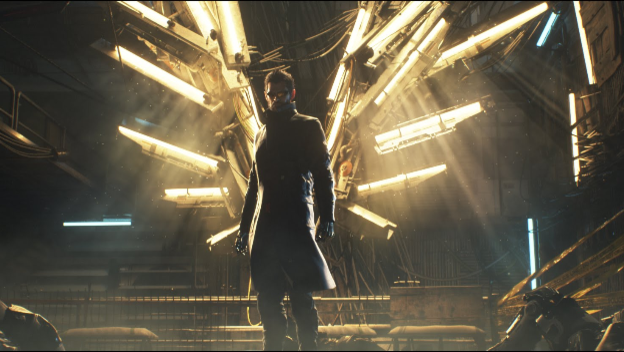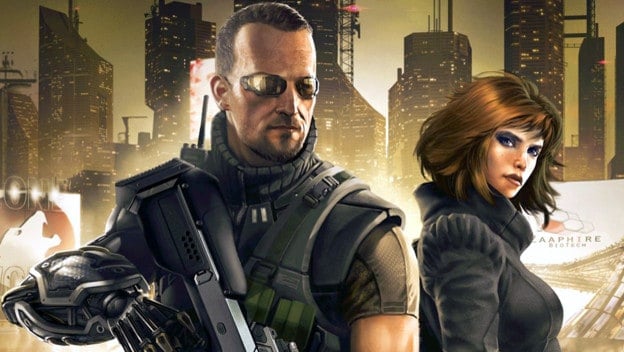WARNING: Spoilers for Deus Ex: Mankind Divided ahead!
Deus Ex: Mankind Divided has gotten fairly good reviews so far, an average of 83 on Metacritic and a 4.5/5 from us. Most have been praising the game’s smooth combat controls, beautiful visuals, complex levels, and RPG components. The only negative, it seems, is that the game acknowledges a lot of today’s political issues by using the augmented people as an allegory for the many minorities in our society. And then that’s it, the game just leaves it there – there is no discourse on the matter of minorities whatsoever. Hell, the game does a fine job of defining what a minority is, and just like the dictionary, stops before it can truly challenge issues of discrimination as right or wrong. It is my opinion that when games do this, it’s downright patronizing; it feels like the industry doesn’t think we can handle the controversy if a game confronts current political and social issues.
Mankind Divided dodges such confrontation during incidents like Jensen’s first conversation with Victor Marchenko. Marchenko is the guard dog of ARC (the Augmented Rights Coalition), a very strong fellow with an eye for philosophy. You must speak with him before you can enter an area called the “The Throat” and extract the leader of ARC. During this encounter, the player can agree that the police brutality in Golem city is wrong and that someone has to stand up to it. Marchenko replies that despite how wrong we might believe something is, it takes a great deal of courage to step out of line. Adam then claims that Marchenko is making the situation sound like a war. Victor confirms this, indignant that Jensen doesn’t already see this, and that everyone must choose a side. It shells out a well-rounded definition of the issues without actually commenting on them.
The Deus Ex series has great potential to confront the issues of minorities in the world. For example, in the incident described with Marchenko, the developers could have done so much more. There was such an opportunity here to have a relevant conversation about the problems in the game’s world, and Eidos Montreal botched it. On one side, we had a great advocate for ARC who is willing discuss the issues of police brutality. On the other side, we have an Adam Jensen equally willing to understand the world he is trying to save. In a game so focused on giving favor after favor, Eidos Montreal could have inserted a quest here where Jensen himself was the victim of police brutality and bound by politics in the mission to not take down the officers. I’m sure Marchenko and Jensen would be discussing exactly why it happened, citing more than just the Incident and theorizing where the fear of Augs might have come from, and how it is perpetuated.
Another missed opportunity is Adam’s conversation with Rucker, the leader of ARC. Yet even that conversation barely mentions the war or racism at all! Instead, it focuses on information, subterfuge, and corrupt officials. Rucker is the leader of ARC, for crying out loud, I think we could have understood if he wanted to talk about his cause for a little while longer, and perhaps even tried to recruit Jensen. Once again, this game does nothing more than define what a minority is, to the point that it feels utterly condescending. As if we don’t already know or fully understand the ramifications of racism.

Now, I don’t mean that challenging current social issues has to be super obvious in a game. None of that “should children work at factories or go to school?” from the infamous Fable III . Take Kanji’s character in Persona 4 instead. The developers purposely started this discourse by forcing the player to be at ease with Kanji’s less than masculine traits. Everyone and their mother has an opinion about him, but to truly understand what current social issue is being addressed in that game, learning the social, cultural, and historical context is key. That’s what creating a discourse on a subject looks like – seducing the audience into learning and questioning the issue. Mankind Divided takes the subject (racism) and never lets the player interact with it. There is no overt discourse (like there was with Kanji’s feminine hobbies or his Shadow), just pure definition.
Needless to say, we’re not stupid. Most of us are willing to learn and are more than thrilled when a video game we love can help us do that. Studying Kanji’s character, for example, has led me to learn a great deal about Japan’s view on homosexuality and the social issues around it. Augmented people though? Thanks for the history lesson, but Mankind Divided doesn’t bother to go further. The game doesn’t even say “racism is bad”, it just says “racism is”. Again, it’s patronizing to assume your audience can’t handle an opinion one way or the other on the issue.
